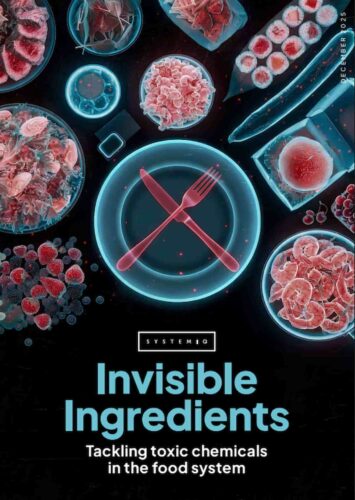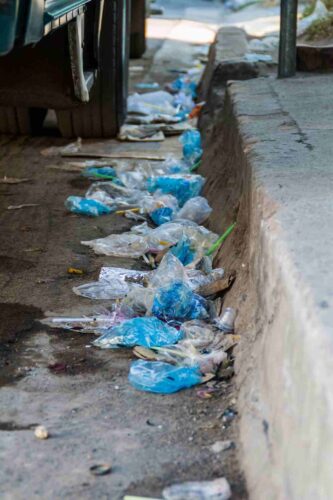
Noncommunicable Diseases Chemical Pollution
Invisible Ingredients: Tackling Toxic Chemicals in the Food System
• Research & Reports
WHAT IS PLANETARY HEALTH?
Human-generated chemical pollution threatens global health, ecosystem balance, and humanity’s long-term survival.
Chemically active materials are discharged into the environment in massive quantities each year, including the introduction of newly synthesized chemicals. Human exposure to chemicals increases with the growth of chemical-intensive industries, including construction, agriculture, electronics, cosmetics, mining, and textiles. We come in contact with chemicals through the air we breathe, the water we drink, and the food we eat. Industrial chemicals have been detected in populations of all ages across the globe and in plants and animals worldwide.
The presence of hazardous chemicals and other pollutants (e.g., microplastics and pharmaceutical pollutants) impacts human health, biodiversity, and ecological integrity. Chemical pollutants have been tied to a broad range of health concerns, including cancers and respiratory illnesses; and diseases of the cardiovascular, central nervous, and renal systems. Recent studies have also focused on the impacts of exposure over time to low levels of pollutants on human reproduction, cognitive health, and food security.

“We cannot live without chemicals. Nor can we live with the consequences of their bad management.” -Joyce Msuya, Acting Executive Director, UN Environment
Noncommunicable Diseases Chemical Pollution
• Research & Reports
Chemical Pollution Collaboration and Partnerships
• Guides & Frameworks
Chemical Pollution Climate Change
• Research & Reports
Chemical Pollution Climate Change
• Research & Reports
Nutritional Diseases Chemical Pollution
• Research & Reports




